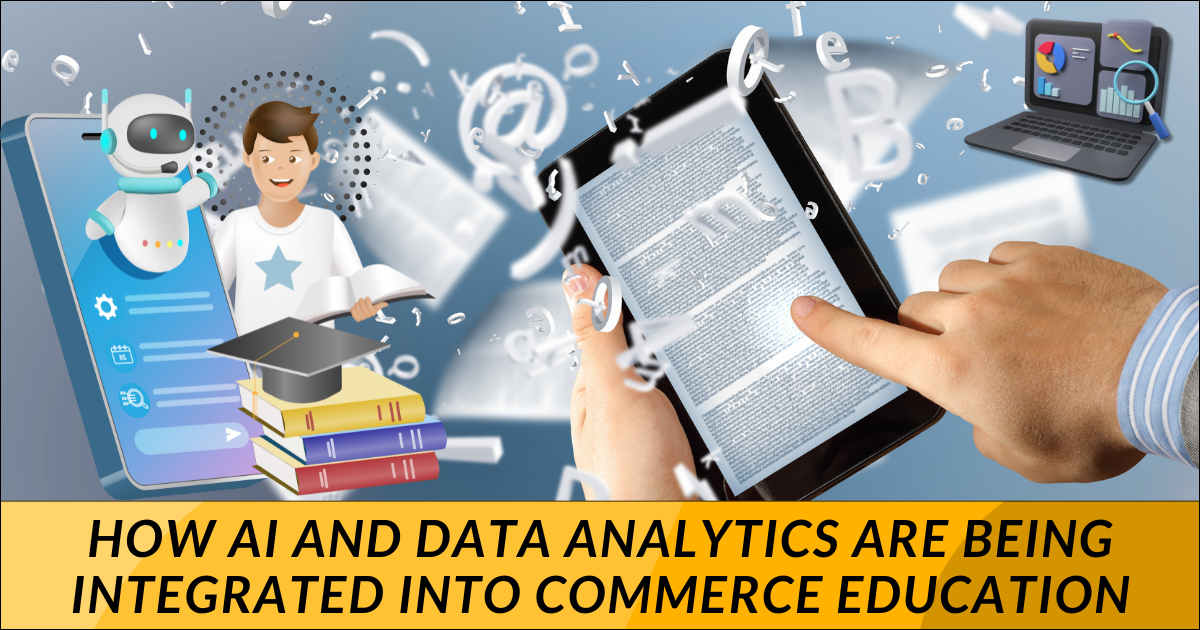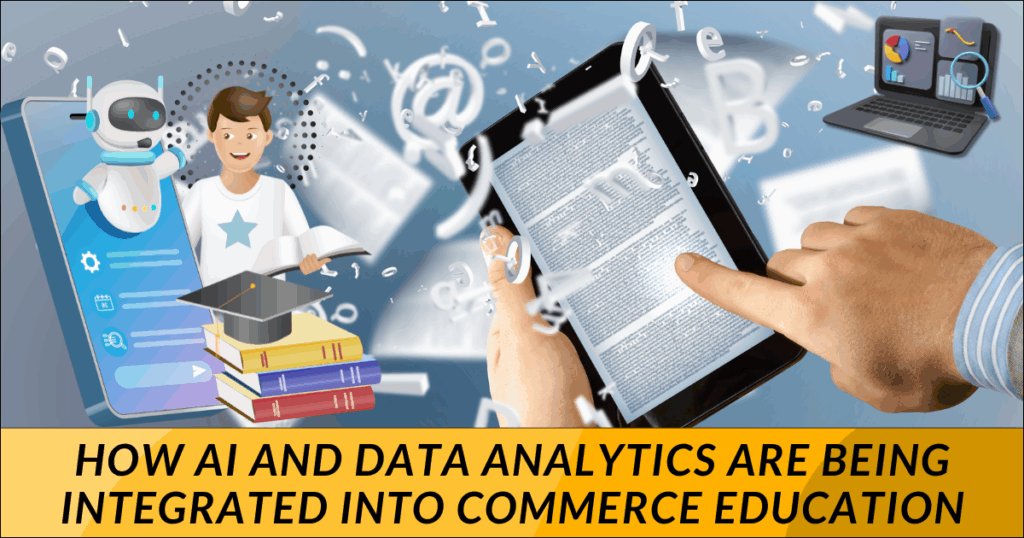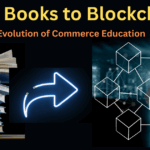How AI and Data Analytics Are Being Integrated into Commerce Education. In the present era, artificial intelligence (AI) and data analytics play a crucial role in the education sector. By using AI and data analytics, students can get more accurate information about their courses. These platforms provide various types of advantages, including personalized learning, data management, quick answers and insights, digital documents and books, etc. AI also saves time, which is very beneficial for commerce students. To know more about the topic “How AI and Data Analytics Are Being Integrated into Commerce Education,” read the complete article.
How AI and Data Analytics Are Being Integrated into Commerce Education
Recent advancements in artificial intelligence (AI) and data analytics are transforming commerce at an exponential pace. By including AI and data analytics in foundation courses, such as customer analytics and generative AI for business practitioners, students are getting better at understanding the intersection of technology, operations, and consumer behavior. AI and digital analytics are proof of the rapid growth in the educational and technological sectors.

Artificial Intelligence: Artificial intelligence (AI) is a set of technologies that enable computers to perform a variety of advanced functions, including the ability to see, understand and translate spoken and written language; analyze data; make recommendations; and more. The learning process of AI typically includes algorithms, which are sets of rules or instructions that guide the AI’s analysis and decision-making.
Data Analytics: Data analytics is the process of analyzing, interpreting, and visualizing large, complex datasets to derive meaningful insights and make informed decisions. It encompasses a variety of techniques, from statistical analysis to machine learning, aimed at analyzing past and current data to predict future trends. It is a multifaceted process involving various stages to extract meaningful insights from raw data.
Advantages of Integrating AI and Data Analytics into Commerce Education
Managing Huge Data
The integration of AI and data analytics is particularly significant for huge educational institutions managing vast amounts of data. Gujarat Technological University (GTU), which oversees 350 affiliated institutions, handles extensive data to enhance its operational efficiency. Dr. Rajul K. Gajjar, Vice Chancellor, Gujarat Technological University (GTU), added a different perspective to the discussion and said, “With 350 institutions affiliated with GTU, we manage a vast amount of data. Data analytics is essential for our operations. We are working to incorporate AI to create common dashboards for institutions, faculty, and students.”
Personalized Learning
AI enables personalized learning by tailoring educational content to meet the unique requirements of each student. Through adaptive learning technologies, artificial intelligence can analyze a student’s strengths, weaknesses, learning pace, and preferences. This data allows AI systems to provide customized lesson plans and resources, ensuring that students receive instruction that is best suited to their individual learning styles. AI predictive analytics can also pinpoint students who might gain more assistance in extracurricular activities.
Virtual Tutors and Assistants
Virtual tutors and assistants are a significant solution to reduce the pressure of both students and teachers. They can simplify extra administrative tasks, accelerate the grading mechanism, and offer personalized learning and instruction. They can provide dedicated learning support and assistance to the students, complementing educators to focus on more complex aspects of teaching while mitigating academic burnout.
Interdisciplinary Learning
As businesses become more complex and globalized, there is an increasing requirement for professionals who have a holistic understanding of different fields. Future commerce education will integrate courses from economics, technology, management, law, and data science to offer students a well-rounded skill set. The growing significance of sustainable business practices, ethical decision-making, and corporate social responsibility (CSR) will be a major focus. Students will be trained in how to balance profit-making with social and environmental considerations.
Predict Analytics for Student Success
Using predictive analytics, educational institutions can forecast student performance and identify at-risk students in advance. By analyzing historical data such as attendance records, grades, and behavioral patterns, institutions can intervene early to provide targeted support and resources to struggling students. This proactive approach not only enhances retention rates but also improves student success and graduation outcomes.
Monitor Enrollment Trends
Utilizing robust analytics, educational institutions can get access to the corrrect details about potential students and then target communities to increase enrollments. It makes it simple for the institutions to reach out to more potential student groups with tailored marketing strategies. The result is more enrollment numbers at minimized costs and in less time. Using such tools also allows institutions to expand their course offering to strategically located campus.








